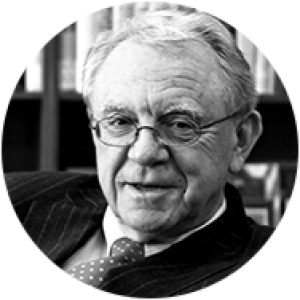
Nationally recognized for his broad expertise in education, research, clinical care and health policy, Dr. Herbert Pardes is an ardent advocate of academic medical centers, humanistic care and the power of technology and innovation to transform 21st-century medicine.
Under his leadership, New York Presbyterian became one of the most highly regarded and comprehensive healthcare institutions in the world. The hospital is top-ranked in the New York metropolitan area and is consistently ranked among the best academic medical institutions in the nation, according to U.S. News & World Report.
An outspoken proponent for academic medicine, children’s health education, mental health issues, access to care and information technology in medicine, Pardes is a regular guest on national television news programs and his opinion editorials have appeared in The Wall Street Journal as well as other newspapers. He is active at the state and federal level, supporting legislation to help hospitals provide quality healthcare while balancing today’s economic realities with making the best possible medical care available to all who need it.
Prior to joining the New York Presbyterian in 1999, Pardes served as vice president for health sciences at Columbia University and dean of the faculty of medicine at Columbia University College of Physicians and Surgeons. A noted psychiatrist, he served as director of the National Institute of Mental Health and U.S. assistant surgeon general during the Carter and Reagan administrations, and was also president of the American Psychiatric Association.
He is a member of the New York eHealth Collaborative (NYeC) Commission on Health Information Exchange (HIE) for New York State and the Executive Committee of the Healthcare Association of New York State (HANYS), President of the Scientific Council of the Brain and Behavior Research Foundation (BBRF), and Chair of the Medical Science Committee of Autism Speaks.
Pardes received his medical degree from the State University of New York in Brooklyn and completed his residency in psychiatry at Kings County Hospital in Brooklyn, with additional psychoanalytic training at the New York Psychoanalytic Institute.